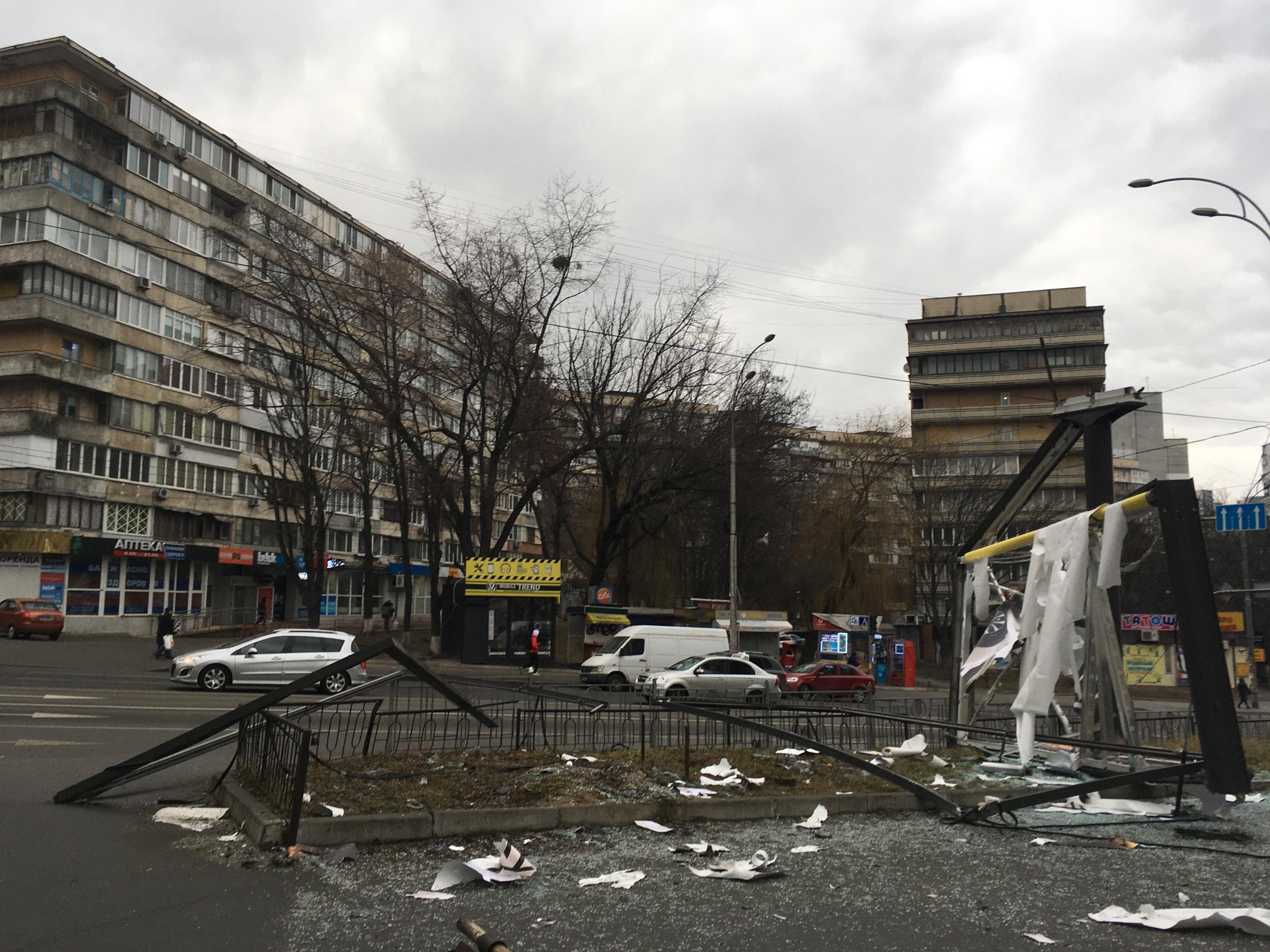MIT Conference Paints Heroic But Dim Picture Of Ukraine
'I just don't see this ending any time soon.'

Aftermath of 2022 Russian strike in Kyiv. Artikel, Wikimedia commons
Ukraine has been withstanding Russia’s invasion for slightly more than a year. One element of this resistance has been the military aid many allies have provided Ukraine. But surely the most important factor, ever since Russia attacked in February 2022, has been the strong sense of solidarity Ukranians have displayed in their attempt to keep their country free and democratic.
That was one takeaway from a recent public discussion at MIT, “Ukraine and Russia One Year On: The Domestic Impact of the War.” The event, held online, was the latest iteration of the Starr Forum, MIT’s prominent event series on foreign policy and international relations.
“This is most important when we look at the internal dynamics now in Ukraine,” said panelist Olga Onuch, a senior lecturer and associate professor in politics at the University of Manchester in the U.K. “Ukrainians not only have shown resilience and resistance, but they have doubled down on [these] things, that are likely to be the most important element of their fight for victory, this incredible sense of a collective action to protect the values and rights that are dear to them.”
If anything, the ongoing war has heightened a previously existing trend toward support for democracy among Ukrainians, which had already been on the rise. As Onuch pointed out, polling shows that from 2019 through February 2022, backing for democracy among Ukrainians rose from around 40 percent to nearly 60 percent.
“Increasingly, ordinary citizens have seen it their duty to engage in elections, to volunteer in societal organzations, and to engage in protest,” Onuch said. “This is something that has been building over time. … This is not simply a wartime rally.”
Onuch is author of “The Zelensky Effect,” a recent book about people who develop a civic-minded sense of duty to their countries, rather than an ethno-national perspective. She is also an affiliate of the Harvard Ukrainian Research Institute.
The Starr Forum is organized by MIT’s Center for International Studies (CIS). This event was co-sponsored by MIT’s Security Studies Program (SSP) and the MIT-Eurasia program, in addition to CIS.
The event’s moderators were Elizabeth Wood, a professor of history at MIT, author of the 2016 book “Roots of Russia’s War in Ukraine,” and co-director of the MISTI MIT-Eurasia Program; and Carol Saivetz, a senior advisor in SSP and a longstanding expert on Soviet and Russian foreign policy.
The event also featured remarks from Yevgenia Albats, a Russian investigative journalist and political scientist who edits The New Times magazine.
“I feel ashamed, sorry, for what my country, Russia, which I am a citizen of, has done to Ukraine, in Ukraine and to its people,” Albats said.
Describing the domestic situation in Russia, Albats detailed her own travails; she has left Russia under threat of serving jail time and is living abroad. Like other journalists, she faced ongoing surveillance as Russia continues to roll back freedom of speech. Friends of hers currently are serving prison sentences, she noted.
“That’s how you live day after day,” Albats said. “And you know that all your communications are taped. [You] never have any guests. You never know who comes to your house. When you leave your house and get in your car, you are followed all around.”
Albats, who during her career has been a Nieman Fellow at Harvard University and a senior fellow at Harvard's Davis Center for Russian and Eurasian Studies, suggested that prospects for future mass action were limited in Russia, but she held out some hope for a change of leadership in the country.
“There are not going to be any popular uprisings,” Albats said. “There’s going to be elite politics, and sooner or later, there will be some sort of a coup d’etat. Don’t expect that this will bring democratic politics into power.” Such a change might, however, “break the spell” that Russian president Vladimir Putin has over the country, she added.
Onuch, for her part, expressed disappointment that Russians have not conducted more visible antiwar protests, either within the country or among the immigrant communities in foreign cities.
“Why haven’t we seen large actions, or [even] very small actions?” she asked. In foreign capitals, she added, “We have not actually seen large Russian-led antiwar demonstrations.”
As for the future course of the war, Onuch suggested that the rise in Ukrainian national solidarity in support of independence and democracy could make it more difficult for any leader of the country to deliver a settlement ending the war, if it did not meet the expectations of the people.
“This is both the secret weapon that Zelensky has in his tool kit, but it’s also potentially an achilles heel for any politician that oversteps,” Onuch said. “This is where the potential problems for political elite[s] arise. They cannot negotiate that which they cannot deliver. Zelensky is not the one who is building the nation, he is not the one that is making the democratic Ukrainian nation. In fact, the Democratic Ukrainian nation is the one that made him who he is today, and without their support he simply will not be able to deliver on any negotiations.”
For Russia’s part, she added, “We all know Russia strategically, militarily, has lost the war it set out to embark on in February [2022]. … It has lost that version of the war, it has now changed tactics, we have seen more missiles, aerial bombings, and we expect that to continue.”
The fact that Russia has not swiftly overwhelmed Ukraine, while Ukrainians have dug in so strongly, indeed indicates that the war may continue for an extended period of time, she added.
“I just don’t see this ending any time soon,” Onuch said.